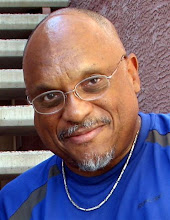A Response to the Lament of Post Christian Acculturation found in this article:
https://www.christianitytoday.com/edstetzer/2019/august/what-missionaries-can-teach-us-in-post-christian-america.html?fbclid=IwAR17mG6rOI8jk0kdQ8DsFP-0KooUfa4k2OQkmLYtvdd607EE8ZS8jZEPhh4
Interesting article. I'd go back as far as Rome taking the lead in making Christian belief the focal faith of the world. If secularization had an official beginning, I'd place it somewhere in that 1-3rd century AD when the warring expressions of the faith were brought to a head by Constantine, in 313 AD, embracing Christianity with the Edict of Milan. Setting the tone with the Nicene Creed, he went on to confess Christianity on his deathbed in 337 AD, still trying to ensure the survival of the Roman Empire at a time when its fall was inevitable. The grand string of magnificent cathedrals that have grown up to enhance the world of architecture and splendor followed, setting in concrete, steel, and glass, the worldly permanence of an other-worldly religion.
The history is something all Christians and non-Christians should read. It seems that early secularization was followed by disagreements from the Anabaptists, to Martin Luther, all the way to the US colonies breaking away from King George and The Anglican Church of Great Britain. The onset of "freedom of religion" included the allowance of freedom FROM Religion, so I can't say when and if America was EVER a Christian Nation. During slavery? The Civil War? The nuclear bombing of Japan? When?
The arguments have persisted pretty much from day one back in the time of disputes between Peter and Paul (Galatians 1). Gabriel Vahanian, A college professor of mine, wrote The Death Of God: The Culture of our Post-Christian Era in 1961. (He was Religion Professor Emeritus at Syracuse University. I took a basic course in religion from him in 1967. He passed away at 85 in August of 2010.).
Vahanian's book set off a cascade of reactions from bad to good and still continues to rock the nation of professed Christianity to its core. That the "post-Christian culture" was upon us so extraordinarily that such a book might have been written and received by a college professor was more evidence that the faith was retreating than any believers could comprehend or accept.. I dare say this Post-Christian Culture, therefore, is nothing new in America or the world at large.
What's interesting is, the article reaching out to venues of repair and re-configuring without even asking if this culture is a good thing or a bad thing. That, in a nutshell, is the reason for it. Presuming that it's the onset of a global nightmare that America has rejected God, feeds the ongoing and failing effort to restrain the plummet as if that's what is supposed to be the response of what's left of Christianity in the Post-Christian Culture.
Maybe we're just growing up. Maybe the post Christian culture has emerged because our human culture has learned so much about the world, the universe, the timing, science, etc. etc. that the ancient-ness of the Christian faith simply has no trough to feed on and could be the problem, not the solution. We are living in an extended disbelief of the Copernican-Galilean revolution of the early 1600's when the world was discovered to be round, not the center of the universe, but just a planet among others, orbiting a star in a universe of unfathomable numbers of such stars.
If I were to advance a "fix" for what even I am not sure a fix is what is needed, I would advise all Christians to re-examine THEMSELVES, discover just how sincere they are in their claim of faith, and continue to pray to a God they believe is the final arbiter of what will happen to a world that has rejected (Him) in so many ways. Find a personal, private channel with which to link to this oftentimes, "why hast thou forsaken me?" God, and enlarge faith to become the sole, valid indicator of truth in (His) existence. Adding works to justify and exemplify that faith should pretty much complete the contribution Christians need to make in a "Post-Christian Culture" whose ultimate judge will act at a time not chosen by those seeking to repair things on earth.
